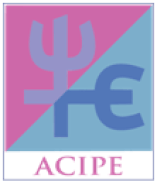
Mª Dolores Gil Llario
University of Valencia, Spain
Abuse prevention, condom use and communication in sexual interactions: assessment and educational strategies for people with intellectual disabilities.
Participants: Mª Dolores Gil Llario; Vicente Morell Mengual; Olga Fernández García; Verónica Estruch García.
People with intellectual disabilities have affective-sexual desires and needs, but they face psychosocial barriers that hinder their possibilities of having healthy, positive and satisfying experiences in this area. Difficulties in accessing sources of information about sexuality, restricted social environments and parental overprotection mean that this population has a very low level of knowledge and skills, increasing their vulnerability to negative experiences such as sexual abuse, unwanted pregnancies and STIs, thereby limiting their opportunities to establish and maintain romantic relationships.
In previous research, the Salusex group has confirmed the existence of the aforementioned shortcomings and the possibility of alleviating them with affective-sexual education adapted to the specific characteristics of the target group (level of experience, degree of support needs, level of literacy, etc.). This affective-sexual education should be given by the professionals who work with them on a daily basis, as they are the ones who know them best, which facilitates a climate of trust and security to talk about this subject. In order to carry out this task correctly, professionals demand valid and reliable guidelines, materials and methods.
In response, we have designed activities to assess the skill level of socio-sexual skills, as well as guidelines to promote their development. In this symposium we focus on three specific aspects related to sexual health: prevention of sexual abuse, condom use and communication in romantic interactions. The methodology we propose stands out for two reasons: it does not require the person being assessed to be literate, and it focuses primarily on their ability to put knowledge and skills into practice. Regarding the dynamics to work on these three points, we present concrete examples of the Saludiversex Programme, a programme of affective-sexual education whose effectiveness has been demonstrated. Regarding didactic strategies, we mainly use role-playing, modelling in situ and brief theoretical explanations to provide them with the basic information that allows them to identify the situations and contexts in which they should put the skills addressed into practice.
Mª Dolores Gil-Llario is a professor at the University of Valencia. Her scientific production, which began in 1995, has revolved around the promotion of sexual health in various groups, focusing in recent years on the affective-sexual education of people with intellectual functional diversity. She has published more than 120 articles in journals of scientific relevance (30 of them in Q1), most of which are the result of the 24 research projects in which she has participated or directed. The latest projects in which she has been the PI were funded by the MINECO's Challenges for Society call and focus on the study of the needs and risks that characterise the sexuality of people with Intellectual Functional Diversity (PSI2014-53546-R) and the analysis of the effectiveness of an affective-sexual education programme aimed at improving their quality of life and preventing sexual abuse (RTI2018-095538-B-I00), respectively. She has published over 90 books and book chapters, the most recent being "SALUDIVERSEX: Programa de educación afectivo-sexual para personas con diversidad funcional intelectual" published by Ed. Pirámide and "La salud sexual en las personas con diversidad funcional intelectual: Realidad, recursos para su evaluación e intervención y análisis de casos" by Ed. She has been director of the Master's Degree in Cognitive Neuroscience and Specific Educational Support Needs, currently teaching the sexuality modules in different master's degrees, including the Master's Degree in General Health Psychology at several universities and the Official Master's Degree in Psychological Intervention in the Social Sphere at the University of Valencia. She is the president of SALUSEX: Association for the study of sexuality and the defence of sexual rights and directs the Research Group of the University of Valencia of the same name (SALUSEX: GIUV2016-341).





